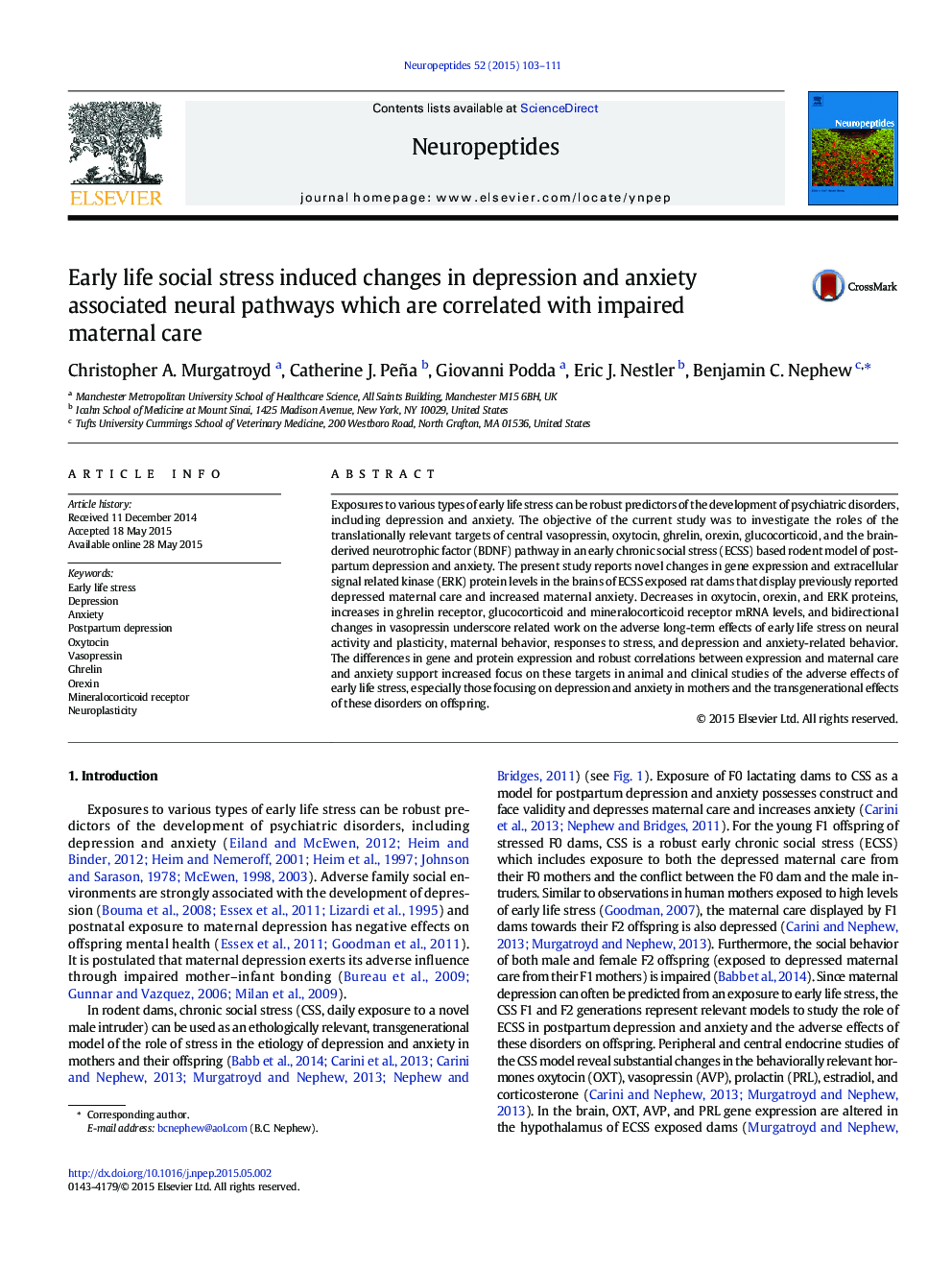| Article ID | Journal | Published Year | Pages | File Type |
|---|---|---|---|---|
| 2807977 | Neuropeptides | 2015 | 9 Pages |
•Early life social stress altered gene expression in several novel translational targets.•Early life social stress altered BDNF associated indicators of neural plasticity.•These changes were correlated with robust changes in maternal care and anxiety.•Increased focus on vasopressin, ghrelin, and orexin in depression studies is warranted.
Exposures to various types of early life stress can be robust predictors of the development of psychiatric disorders, including depression and anxiety. The objective of the current study was to investigate the roles of the translationally relevant targets of central vasopressin, oxytocin, ghrelin, orexin, glucocorticoid, and the brain-derived neurotrophic factor (BDNF) pathway in an early chronic social stress (ECSS) based rodent model of postpartum depression and anxiety. The present study reports novel changes in gene expression and extracellular signal related kinase (ERK) protein levels in the brains of ECSS exposed rat dams that display previously reported depressed maternal care and increased maternal anxiety. Decreases in oxytocin, orexin, and ERK proteins, increases in ghrelin receptor, glucocorticoid and mineralocorticoid receptor mRNA levels, and bidirectional changes in vasopressin underscore related work on the adverse long-term effects of early life stress on neural activity and plasticity, maternal behavior, responses to stress, and depression and anxiety-related behavior. The differences in gene and protein expression and robust correlations between expression and maternal care and anxiety support increased focus on these targets in animal and clinical studies of the adverse effects of early life stress, especially those focusing on depression and anxiety in mothers and the transgenerational effects of these disorders on offspring.
